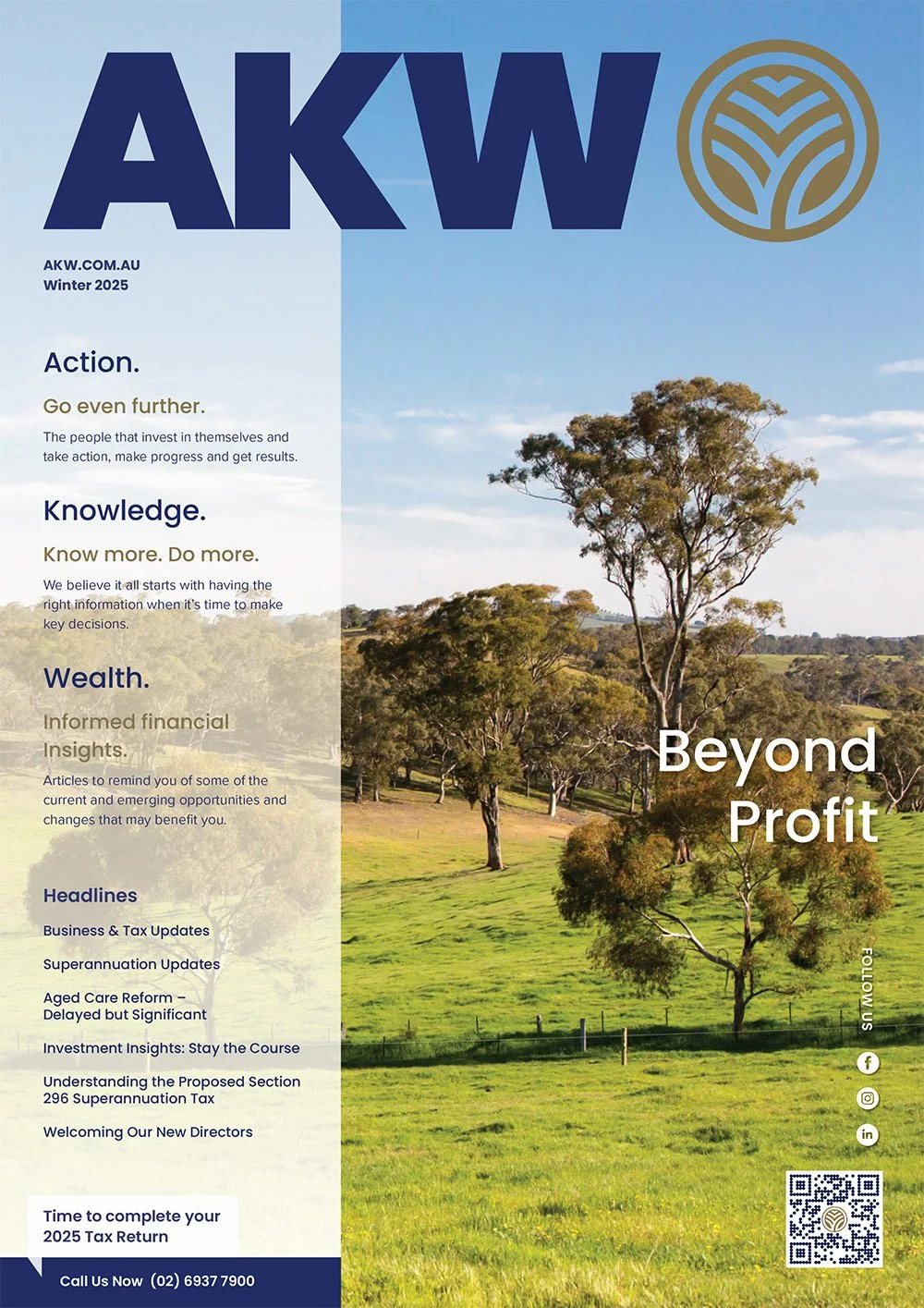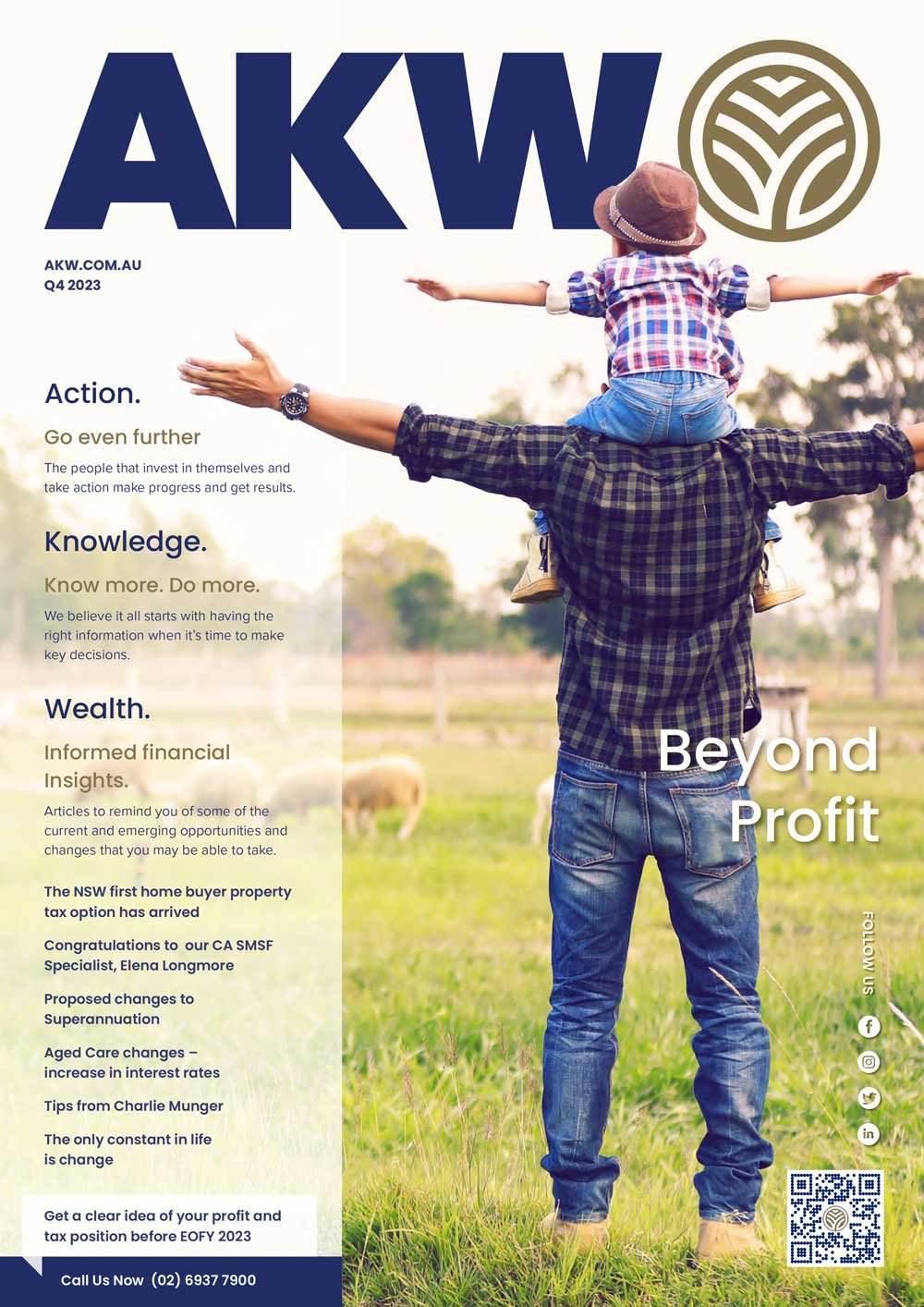Federal Budget 2023-2024
Should any of the issues affect you, please call our office and speak to your advisor.
Last update May 2023
The Big Picture
While the first budget surplus in a decade and a half is to be celebrated, the joy could be short-lived. High commodity prices (resulting in higher corporate tax) and low unemployment have combined to increase government revenue higher than forecast by the Treasury. By next year’s budget, it’s expected there will be a return to deficits for the foreseeable future.
That’s because the global economy is slowing thanks to persistent inflation and higher interest rates. Aside from the pandemic and the 2007 Global Financial Crisis, the next two years are expected to be the weakest for global growth in more than two decades.
As a result, the government expects Australia’s economic growth to slow from 3.25 per cent in 2022-23 to just 1.5 per cent the following year, before recovering a little to 2.25 per cent.
In this environment, the treasurer continues to mark inflation as the government’s primary economic challenge. He says that is why the budget is “calibrated to alleviate inflationary pressures, not add to them”. It remains to be seen if this can be achieved with Betashares chief economist David Bassanese saying that the budget was “unambiguously expansionary” and adds to the risk the RBA may need to raise rates at least once, and possibly twice, in the coming months.
Easing the cost of living through handouts
The government’s $14.6 billion package of cost cuts aimed at helping some of those most affected by rising costs covers energy bills, health and medical services, and welfare payments.
There will be energy bill relief to around five million households and one million small businesses. From July 2023, eligible households will receive up to $500 and eligible small businesses up to $650.
The government will also introduce a number of energy saving programs for households including low-interest loans and funds for upgrades to social housing. And there will be access to better information on reducing energy bills.
Health and Medical
The government will spend an extra $3.5 billion to provide incentives to doctors to bulk bill Concession Card holders and children under 16. It’s expected that the increased bulk billing incentive will help around 11.6 million people.
The cost of medicines is also likely to change for many who suffer chronic health conditions. From 1 September 2023, some patients will be eligible to be prescribed two months’ worth of medicine at a time, instead of one month’s worth. It’s expected this change will cut the number of visits to GPs and pharmacies, and the government estimates at least six million people will see their bills for medicines reduced by half.
The government is also providing $2.2 billion over five years for new and amended listings to the PBS, including treatment for cystic fibrosis.
Welfare Boost
Income support payments including JobSeeker, Austudy and Youth Allowance will rise by $40 a fortnight following a concerted campaign by lobby groups in the months leading up to the budget.
And, recognising the extra challenges faced by older people looking for work, those aged 55 and over and out of work for at least nine continuous months, will now receive the higher rate JobSeeker payment currently paid to those over 60. Around 52,000 people will receive the increase of $92.10 a fortnight.
There will be more support for eligible single parents from September 2023. They will receive the Parenting Payment until their youngest child turns 14 (currently up to eight years old). Those receiving the payment will also benefit from more generous earning arrangements compared to JobSeeker. Eligible single parents with one child will be able to earn an extra $569.10 per fortnight, plus an extra $24.60 per additional child, before their payment stops.
Support for families
Childcare will be cheaper from July 10, when the government subsidy will increase to 90 per cent for families on a combined income of $80,000 or less.
For families earning over $80,000, the subsidy rate will taper down by 1 percentage point for every additional $5,000 of family income until the subsidy reaches 0 per cent for families earning $530,000.
A more flexible and generous Paid Parental Leave scheme will also be introduced in July. A new family income test of $350,000 per annum will see nearly 3,000 additional parents become eligible for the entitlement each year.
Superannuation
Superannuation is in the government’s sights and employers and individuals with larger balances will be affected.
The concessional tax for those with balances exceeding $3 million will increase from 1 July 2025 to 30 per cent. Earnings on balances below $3 million will continue to be taxed at the concessional rate of 15 per cent.
Meanwhile from 1 July 2026, employers will have to pay their employees’ super at the same time they pay their wages. The government says that in 2019-20, employers failed to pay $3.4 billion of super owing to their employees.
Planning ahead
The stormy global economic outlook will keep Australia on its toes for the next two years or so, but the government has attempted both to support those who are particularly vulnerable now and keep an eye to the future with some bigger thinking.
Read more valuable Tax Tips from Robert Fry aiding in end-of-year tax planning and unpacking additional Federal Budget announcements.
If you haven’t already started tax planning, now is the time to reach out to your AKW advisor to work through making the smartest decision for your business.
Information in this article has been sourced from the Budget Speech 2023-24 and Federal Budget Support documents. It is important to note that the policies outlined in this publication are yet to be passed as legislation and therefore may be subject to change.
AKW Financial Services are Authorised Representatives of Oreana Financial Services Pty Ltd, AFSL 482234. This advice may not be suitable to you because it contains general advice that has not been tailored to your personal circumstances. Please seek personal financial and tax/or legal advice prior to acting on this information. Past returns are not indicative of future returns.











